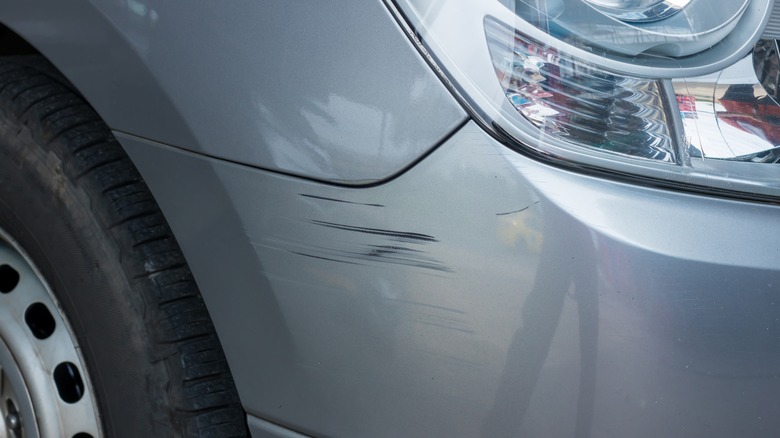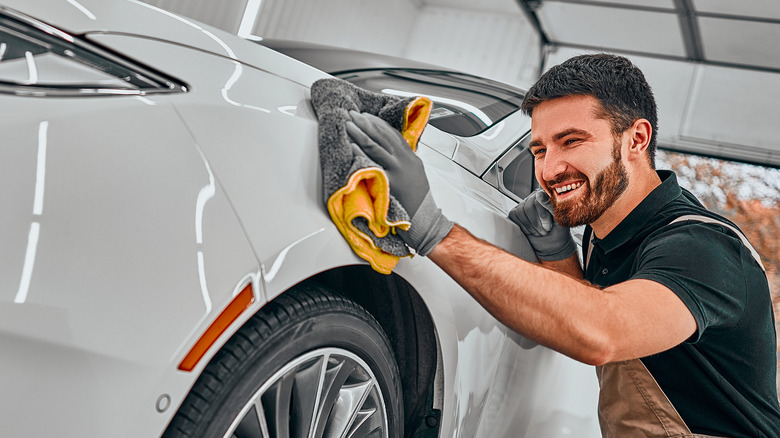Here’s a fun fact: Toothpaste works to clean your teeth through the use of slightly abrasive substances, among other things like fluoride. Those little abrasive chemicals work to dislodge gross stuff from your teeth like food bits and microorganisms, while also polishing the surfaces of your teeth. That’s why it’s important to brush your teeth with proper toothpaste, instead of just using water. And say, do you know what else occasionally needs both polishing and cleaning? Your car.
Scratches on your car’s paint job are both unpleasant to look at and incredibly annoying to get rid of. No matter how much you scrub and buff, they just don’t seem to come out, and if you overdo it, you might make the scratches worse. But much like scrubbing gunk off of your teeth, you can buff those scratches off with the right stuff, and as it so happens, it’s the same stuff: toothpaste.
What you’ll need

As with any car cleaning or maintenance job, you’re going to need a few simple materials in order to perform a toothpaste scratch removal. The obvious one is toothpaste, but we’ll get to that in a moment.
First, you’re going to want a couple of soft microfiber or terry cloths for applying your cleaning substances, as well as for drying everything off after the fact. Additionally, you’ll need a small bowl of clean water. You don’t need a lot, just enough to soak your cloths.
Now, for the all-important toothpaste. There’s an important element you need to consider here: the toothpaste’s Relative Dentin Abrasion, or RDA. That’s a metric of how abrasive a toothpaste’s particular makeup is. If you use a toothpaste with too high of an RDA, you could risk damaging your car’s paint job further. Make sure to use a toothpaste with a medium-level RDA, somewhere in the range of 80. Sensodyne is one of the best toothpaste brands for this purpose, as most of its products are in that range.
Cleaning scratches with toothpaste

Once you’ve got all of your materials together, it’s time to brush those scratches out. Make sure you work quickly — toothpaste tends to solidify pretty quickly once it’s out of the tube, so it might get stuck if you dawdle.
- Clean the surface of your car with water and a cloth.
- Squeeze a small amount of toothpaste onto another cloth.
- Gently rub the scratched area of your car with the cloth in a circular motion, making sure to get the toothpaste into it fully.
- Carefully rub the pasted area with another wet cloth until the toothpaste has been removed.
- Repeat as necessary until scratches are gone.
There are a few important things you need to remember during this process. Firstly, make sure you rub the toothpaste in carefully and gently. If you apply too much pressure, you might damage your car’s paint.
Secondly, this kind of treatment only works on small, surface-level scratches on your car’s paint. If the scratch is too deep, toothpaste will either do nothing or make it worse.












